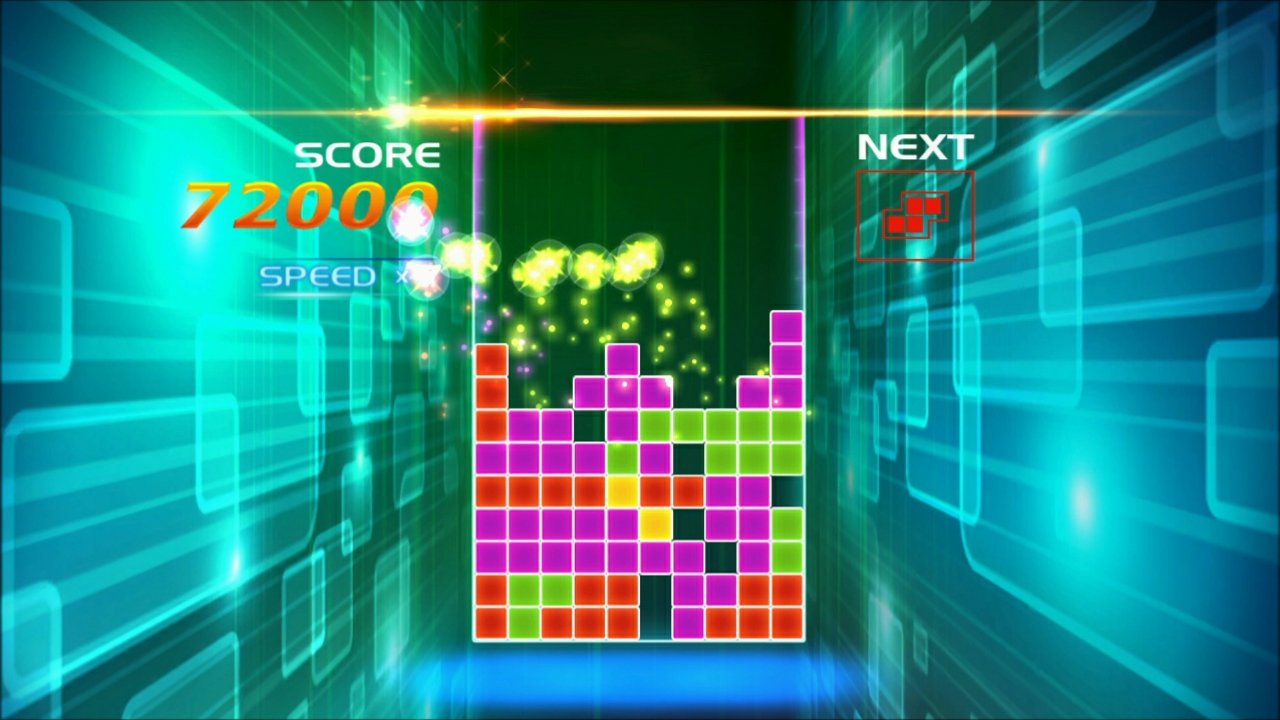

Platform: Nintendo Wii U
Region: Other
Developer(s): Sanuk Games
Publishers(s): Sanuk Games
ReleaseDate: 2016-09-01
Players: 4
Co-op: No
Tetraminos
Tetris was created by Russian game designer Alexey Pajitnov and originally released in 1984. It wasn't until the title's debut on the Nintendo Game Boy in 1989 that the tile-matching puzzle game became a truly global sensation and established itself as one of the most popular video games of all time. To date, Tetris and more unofficial variations of the game are still being released on a regular basis across multiple platforms. Tetraminos - published by Sanuk Games - takes the same original but arguably perfect Tetris formula and makes small adjustments with an aim of improving the overall quality of each play session. This enhancement comes at the expense of the classic tetrominoes you've no doubt grown fond of over the years. In the classic version of Tetris, each tetromino is a geographical shape composed of four squares, connected orthogonally. These shapes are more commonly known to resemble letters of the alphabet. In Tetraminos, there are blocks which do not meet these exact specifications. The result is new shapes including a two square rectangle, a plus sign, and even a single block. The decision to add in new blocks is a big call. This is presumably related to certain legalities surrounding the Tetris license - or maybe it is just a genuine attempt by the developer to stand out among existing mediocre releases. Whatever the reason is - Tetris in its most basic form is already flawless; even the slightest adjustment to such a masterpiece is a huge gamble. The new shapes featured in Tetraminos have a strong influence on the way the each session unfolds compared to traditional versions of the classic tile-matching puzzle game. A lot of the new shapes allow the player to recover a bad move with a lot less effort, but at the same time this makes the entire process a little too easy. There is a nice sense of flow to the game because of these additional shapes, though when you find yourself inserting a single square underneath a pile of errors, you feel somewhat guilty the game allows such a recovery after poor decision-making. There are additional score multipliers to further separate Tetraminos from the source material, such as colour combos, although it's nothing that hasn't been done before. In terms of the actual content on offer in Tetraminos, there is a standard endless mode, a challenge mode and a puzzle mode. The lack of online leaderboards in the endless mode is hard to ignore. The challenge mode requires players to clear a set amount of rows before a timer runs out, and the puzzle mode offers 50 challenges. These puzzles require the player to clear blue blocks on the screen within a limited number of moves. Expect a lot of restarts if you want to earn a three star ranking on each puzzle. While these modes are welcome, the overall feel is still relatively bare bones. The overall presentation of Tetraminos is rather slick. Neon coloured shapes add a modern touch and colourful patterns that slowly transform over time fill the entire screen in the background. The music that accompanies this is crisp, as is the audio voice-over that is present when the player is working towards a high score. The menus are reflective of the streamlined aesthetics, with a simple layout that is easy to navigate. Further enhancing this functionality is the ability to use multiple controllers including the Wii U Pro Controller. The standout feature of Tetraminos is the multiplayer, which allows allow up to four players to participate. This mode rewards line clearance by dropping more blocks into your opponent's grid. Players can also drop two lines on their opponents grid if they manage to create a line of one colour (also known as a colour strike). Even though it's nothing that hasn't been done in past iterations of Tetris, it still provides some level of appeal. If you're evenly matched, the general intensity of the multiplayer makes for some fun moments.
Trailer: YouTube
ESRB Rating: E - Everyone
Genre(s): Puzzle | Virtual Console



